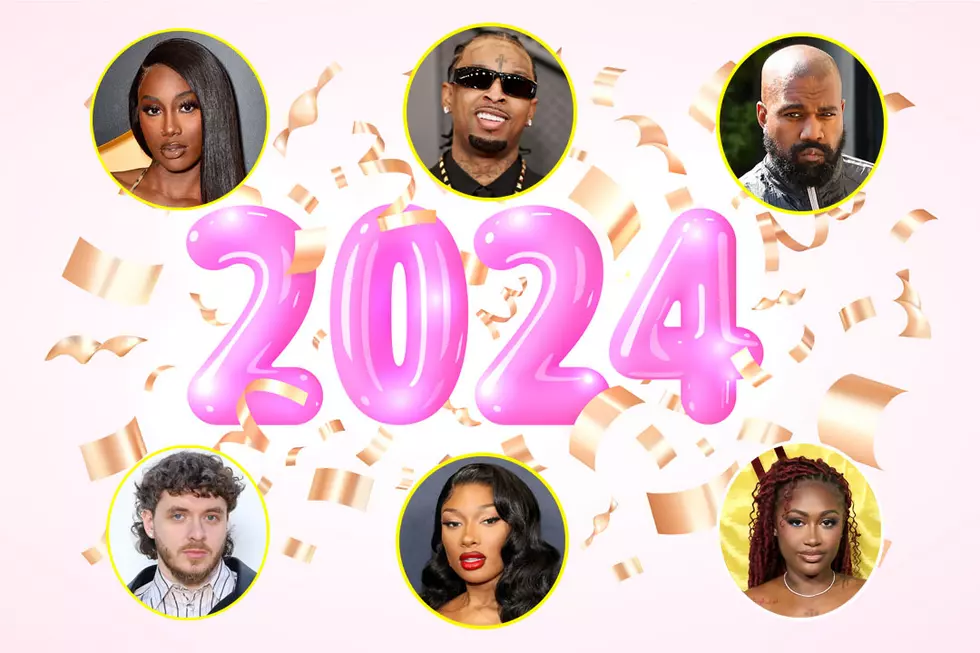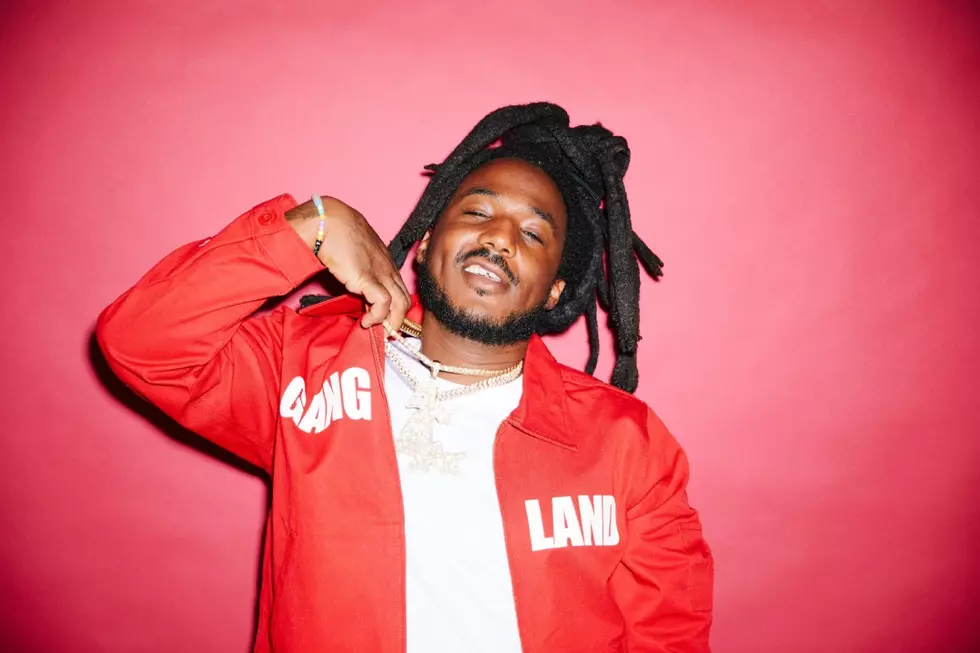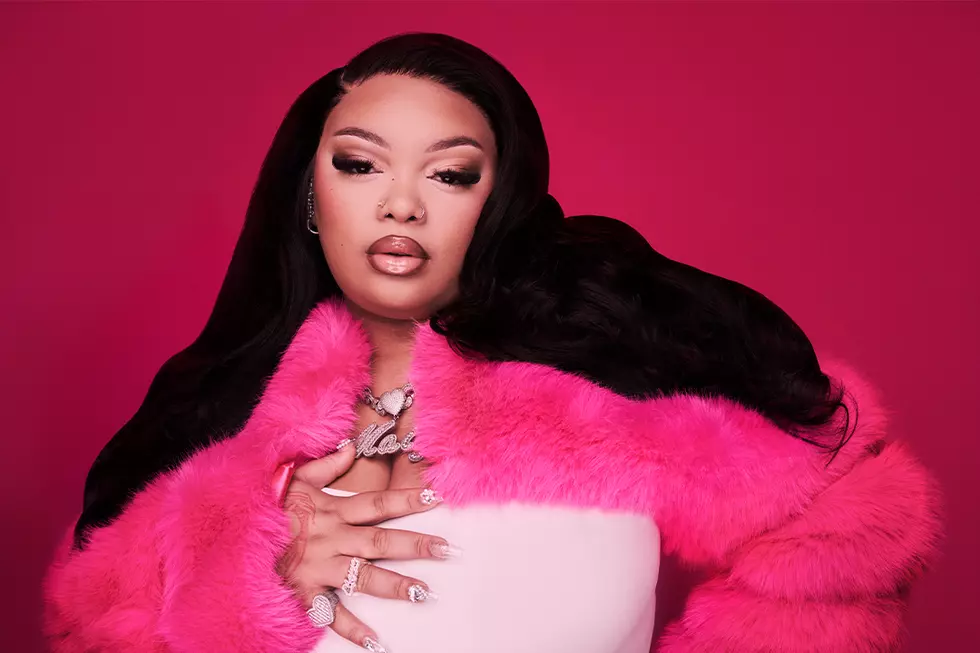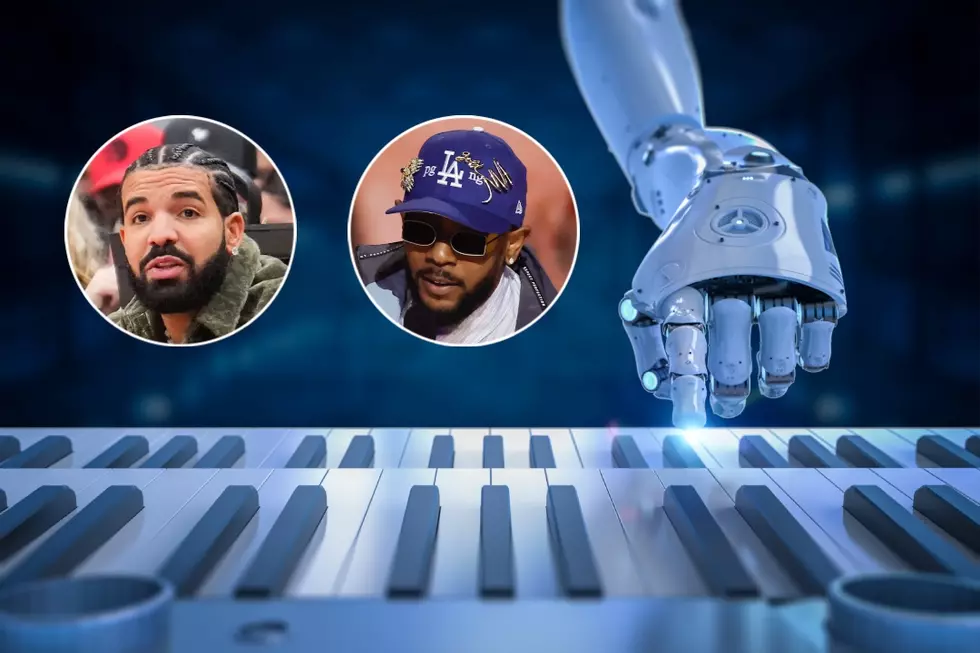
T.I. Thinks Being On a Major Label Made Him Lazy
T.I. has been under the umbrella of the major label system for more than a decade now, with stops at Arista (briefly), Atlantic and Columbia Records, the latter of which distributed his previous album, 2014's Paperwork: The Motion Picture. Which makes it that much more significant that one of the biggest artists to ever come out of the South is finally going independent for his 10th album, The Dime Trap, due out later this year on his Grand Hustle Records imprint. He tested the waters most recently with Da' Nic, a 19-minute, five-song EP he dropped Sept. 11, recorded in nine days in his Atlanta studio and featuring a return to the trap-inspired sound that soundtracked his introduction to the game with I'm Serious (2001), Trap Muzik (2003) and Urban Legend (2004).
And that, to hear the King of the South tell it, is a calculated move. After all, there aren't many artists who survive the constantly-evolving, what's-next mentality of the music industry for long enough to even get to their 10th LP, let alone return to the type of hands-on hustle and grind that typifies an independent movement. But Tip has reached the point in his career where he's perhaps more self-aware and cognizant of his place in the game than ever, understanding his value and realizing that there is an open lane for the type of real talk, from the heart street music that he built his career from. And after 14 years of climbing to the upper echelons of the music world, he no longer needs a major corporate partner to deliver that message.
But new music isn't the only thing Tip's been working on; he's got his young roster on Grand Hustle to nurture, various film projects in the works and a position as a vault of advice for up-and-coming artists to consider. He's a voice for the people in a way that not many others can claim. And he's been in the studio with the likes of Dr. Dre—who he refers to in typically-Tip verbiage as a "meticulous perfectionist"—to help cook up The Dime Trap. Over two phone conversations within a week—the second occurring on his 35th birthday last Friday—T.I. spoke to XXL about his new album, the freedom of finally being independent, working with Dre and Jeezy, talking politics with Killer Mike, the potential for a T.I. biopic one day and much more. He's serious. —Dan Rys
XXL: You put your new EP, Da' Nic, together in just a couple days. What inspired you to put it together and put it out so quickly?
T.I.: Yeah, Sept. 2 to the 11th. I mean, because I wanted to. I felt like I've been doing a lot of talking about music, about putting out The Dime Trap, and in my last situation [with Columbia], one of my biggest objections to the partnership was that it just moved so slow, you know? It just took so long to get things on track to be released in a timely manner. And you know, right now in the current status of the market here, you have to move at the speed of business a little more. And now I have the flexibility, given my independence, to do this and I just wanted to take advantage of it. It's not like the music isn't there, it's not like we aren't capable and we don't have it, we just have to get it out there. Sometimes we can overthink things. So I challenged my team and told them, "I'm movin', so y'all gonna have to catch up." So that's what they did, they caught up and we pulled it off.
Did you have any apprehension about going independent after so many years at major labels?
Nah, not really. To be honest with you, I think us having the support of a major has definitely always been welcomed, appreciated and we were able to accomplish phenomenal things for our career given the support of our partners at the major distributors, from Atlantic to even with Sony and Columbia. I'm not trying to say in any way that those partnerships were not appreciated. However, I feel like it kind of made us lax and lazy and just to be able to lean back on the luxury of the corporate sponsored check. [Laughs] You know, those big, lavish budgets; it's more than we needed, you know what I mean? We directed all our dollars into the appropriate place, but it subtracted from our edge, you know. Now, I feel like we operate cleaner, we meaner, we bigger and better in our own way just in our execution. We spend a lot more time talking to each other, a lot more time challenging one another's ideas, a lot more time planning and preparing and actually doing the things that we did before Atlantic, when we were working our way up to releasing Trap Muzik. The togetherness is back, you know what I'm saying? It feels like now we actually have a reason to come together and work together for a common good. Whereas before it was about grabbing that check and, you know, "I'll see you at the show." It's a better energy now.
Does it feel like a new beginning for you in a way?
Yeah, absolutely, in more ways than one. Simply just, I think that we just never really took the time or paid the attention to what it was before I actually changed into T.I. My team knows me, they know where we at. I feel like at this point in my career, I'm famous enough; people already know who I am and if they can't distinguish Tip from T.I., they probably wasn't very interested in anything I had to say in the first place.
What can you tell me about The Dime Trap?
Well, The Dime Trap is dedicated to my day one fans. I felt like, this being my 10th album, I have fans that discovered me first that feel like they were the most invested in my career and success and supported me the most throughout all my ups, downs, trials and tribulations. And those day one fans, that core demo, they expect me to be the voice for the underserved areas of society and they expect me to speak for people who can't speak for themselves. And they expect me to do that by way of the music. My messages, the tone of my music, the weight of it. They expect me to represent a certain lifestyle of the community, a certain part of the culture. And I have done that within my albums consistently, but there hasn't been one entire project that has been dedicated consistently to that since like Urban Legend or Trap Muzik.
Ten albums in. Did you ever think you would get this far?
You know what? I never really looked at it in terms of how far I would get or how many years in the business. Man, for real, we just wanted to make dope shit, show people we were capable of making dope shit consistently and as I said before, being a voice for the community. Speaking for people who don't have the luxury or ability to speak for themselves.
Who are you working with?
Well, we have the usual suspects, a lot of the in-house producers from Hustle Gang. You'll see Mars from 1500 or Nothin', I also worked with League of Stars, Watch The Duck. I'm working on The Dime Trap literally as we speak; it's mostly done. But I guess the greatest contribution that really kind of humbled me and flattered me was Dr. Dre's contribution. He gave me like five beats, you know what I'm sayin'? And they're all dope.
What's it been like being in the lab with Dre?
[Laughs] Man, Dre is a meticulous perfectionist. I've never seen someone spend so much time perfecting a composition before. I mean, from the megahertz to the frequencies to the lows, the mids, the highs, the reverb, just all kinds of shit. I'm talkin' 'bout there's parts of songs that you've never even knew existed that he's tweaking trying to make sure it's perfect. Even though we will probably all sit back and say, "We will probably never hear this detail, except for you," once you hear it altogether once it's finished you've never heard a more masterful production. And that shit is just amazing to watch, let alone to be involved with it and actually be under the instruction or construction of [it], you know what I'm saying? It's just amazing to be able to bear witness to it.
You're always working with new artists. What are some of the things you look for in an artist before you decide to collaborate with them?
Individuality. Like, you know, the strength of their own movement outside of whatever institution they may be associated with, how they galvanize their own internal unit. Like Troy Ave, for example; he has his own unit, he has his own team of people, he delegates responsibilities and he moves a certain portion of New York. And I think the same can be said for people like Kevin Gates, the same can be said for people like Peewee Longway, people like Travi$ Scott, Young Thug. I look at what they are able to do outside of the institutions. Their dedication to the fans, how they move and how they interact with the fans and how they strategically put themselves in places and do things for the purposes of the progression of their own careers. Whether that's putting out a record, whether that's shooting a video, whether that's doing a tour or whether that's just showing up at the mall and kicking it, hoppin' out in the hood with no security. Just the little things a person does that shows that they have an individual idea of how they want to apply their strengths to their career.
Do those types of guys come to you for advice? What kind of advice do you share with them?
I mean, yeah, they definitely come to me for advice, man. There's a young guy right now, man, that I'm lookin' at by the name of 21 Savage. He's a young cat from Atlanta, he's very very young, he's very new, but he asks a lot about how to take meetings, how to articulate himself in a professional sense versus what he's used to doing. All that kind of stuff, man. I love to share. Most of the time, the hard part is when you have something to share and people don't want to listen.
Lately you've mentioned getting further into movies. Have you thought about a biopic on your own life?
Man. All the time people say that would be a great story to tell. I agree. I mean, yes, I would love to do it. I think at 35 now, you know what I mean, I'm a tad more open to doing it than I was at 25. [Laughs]
This Drake and Future joint project just came out. I remember a little while ago you and Jeezy were talking about doing a joint album. Have you kept that idea going?
Yeah, we kept that idea going. We have music. I think the time that we had to do it, Jeezy had some shit going on—it was a positive, personal highlight for him, very positive—so he took a little time to himself to dedicate his time to that, which was very important. I won't spill no beans on that or let no cat out of no bag; he just had something personal he had to deal with, a positive thing. And now it's about him getting back into his solo shit and me getting my solo shit together. So we just got to find the time, you know what I mean? The music is there, we just have to find the time to actually dedicate to it.
You've done this throughout your career, but on your last album, with the song "New National Anthem," you made a pretty pointed political statement. Have you been paying attention to the presidential debates this time around?
I watched the last Republican debate; me and Killer Mike watched it together. You know, Killer Mike, that's one of my best pa'tna's in this shit, we knew each other before and went to the same high school. We from the same side of town, so you know, we've always been the smart guys in the ghetto. He actually took it a step further by actually going to Morehouse. But he enlightens me a lot on the specific positions and stances of a lot of the candidates; he's much more knowledgeable about it all. I know it's all kind of orchestrated to entertain, for one, and that it's about the position of the party. So where the party's position is, that's what's gonna be the platform. And whoever you put in that position, it's still gonna be the position of the party, it ain't gonna be this one person, if he wants this he's gonna do it.
Have you considered addressing more political issues on the album?
You know what man, I don't know. I mean, there are records that I definitely address... See like, "New National Anthem," I was talking to America, but the other side of America that I feel like doesn't understand us. I was talking to them. These songs, I'm talking directly to my people, you know what I'm sayin'? So it's not as political, it's more introspective, like, "Hey man, don't do that, why don't you consider this?" I wouldn't call that political, it's more insightful. It does address some political issues, I don't think it has a political tone to it.
Is there anything in your career that you haven't accomplished yet that you still want to do?
Absolutely, there's several things. One thing would be releasing a film and album in the same week and have them both be No. 1. I feel like I have an ability to actually pull that shit off. That's probably the most ambitious of them all. But other things just include creating opportunities for the people around me and introducing somebody to the game that can actually go on and surpass my level of success.
More From XXL









